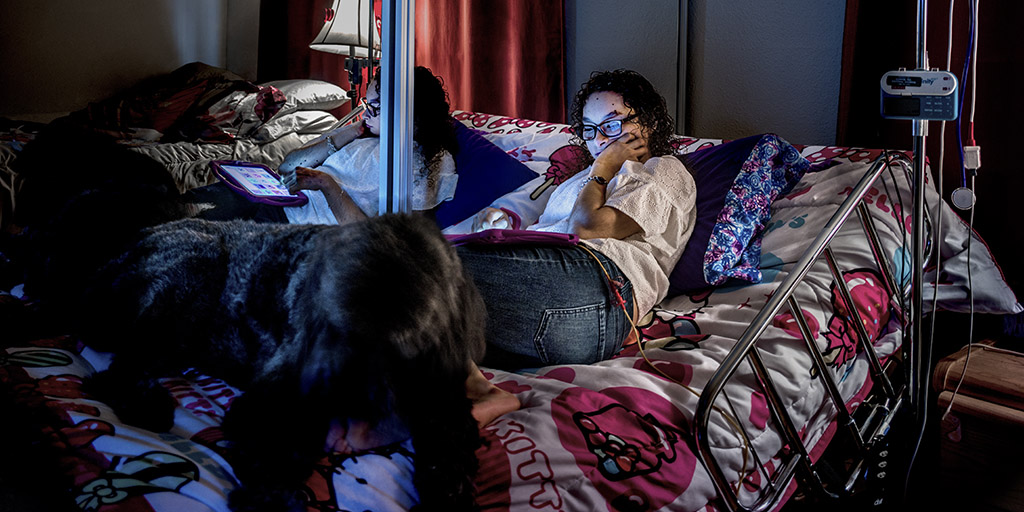Earlier this year, when I was preparing to meet 19-year-old Alyssa Davilla, I didn't know what to expect. Alyssa, who was born missing a large region of chromosome 5, has autism-like symptoms and speaks only a few words.
I was writing for the latest issue of Stanford Medicine magazine about an iPad app that has unlocked Alyssa's communication abilities, and I was nervous. When I'm reporting, my job is largely to get people talking. I didn't know what it would be like to interview someone with very limited speech.
Alyssa met me at the front door of her family's home in San Jose, California, holding a favorite jigsaw puzzle and saying "Fi, fi" to make sure I noticed the fish in the picture. Alyssa's mom, Monique, had told me by phone that in the last year, since she began using the iPad app, Alyssa's sociability and sense of humor had really emerged. It's a big change from the time when her communication was mostly limited to pointing at flash cards.
Soon I was watching Alyssa communicate, via the iPad, with her longtime teacher, practicing spelling and discussing what clothes to wear for various types of weather. The app, called PODD with Compass, is designed specifically for people with very limited verbal and reading abilities. It uses illustrated icons to cover a huge vocabulary.
As I explain in the story, Alyssa can express her thoughts and needs as never before:
Questions about her gregarious dog used to fall to her mom, but now, Alyssa Davilla can play a recording that says, 'I have a service dog and his name is Elmo.' She can tell people her favorite TV shows -- Dora the Explorer and Blue's Clues -- or say if she wants space. During a recent hospital stay, when there was too much hustle-bustle in her room, she told the nurses, 'I'm sick, I need to rest.'
How does it make her feel to be able to communicate this way? 'Good, awesome, smart.'
At one point during my visit, while Monique and I talked, Alyssa looked uncomfortable. Her mom asked if it felt weird that we were talking about her right in front of her, and she nodded. I told Alyssa it felt odd to me, too, but that I hoped something good would come from my visit: Maybe another family struggling to reach a child with limited verbal abilities would read about her experience and try new tactics to break the communication barrier.
When she heard this, Alyssa turned to her mom and gave a really happy, contented grin. She didn't say anything, but it was easy to see how she felt. Sometimes no words are needed.
Photo by Max Aguilera-Hellweg




